第31章
That there should be from this day forward between His Majesty the King of France and the Holy Father a sincere friendship and a firm alliance;Before the completion of the conquest of the kingdom of Naples, the King of France should occupy, for the advantage and accommodation of his army, the fortresses of Civita Vecchia, Terracina, and Spoleto;Lastly, the Cardinal Valentino (this was now the name of Caesar Borgia, after his archbishopric of Valencia) should accompany the king in the capacity of apostolic ambassador, really as a hostage.
These conditions fixed, the ceremonial of an interview was arranged.
The king left the Palazzo di Venezia and went to live in the Vatican.
At the appointed time he entered by the door of a garden that adjoined the palace, while the pope, who had not had to quit the Castle S.Angelo, thanks to a corridor communicating between the two palaces, came down into the same garden by another gate.The result of this arrangement was that the king the next moment perceived the pope, and knelt down, but the pope pretended not to see him, and the king advancing a few paces, knelt a second time; as His Holiness was at that moment screened by some masonry, this supplied him with another excuse, and the king went on with the performance, got up again, once mare advanced several steps, and was on the point of kneeling down the third time face to face, when the Holy Father at last perceived him, and, walking towards him as though he would prevent him from kneeling, took off his own hat, and pressing him to his heart, raised him up and tenderly kissed his forehead, refusing to cover until the king had put his cap upon his head, with the aid of the pope's own hands.Then, after they had stood for a moment, exchanging polite and friendly speeches, the king lost no time in praying His Holiness to be so good as to receive into the Sacred College William Bricannet, the Bishop of St.Malo.As this matter had been agreed upon beforehand by that prelate and His Holiness, though the king was not aware of it, Alexander was pleased to get credit by promptly granting the request; and he instantly ordered one of his attendants to go to the house of his son, Cardinal Valentino, and fetch a cape and hat.Then taking the king by the hand, he conducted him into the hall of Papagalli, where the ceremony was to take place of the admission of the new cardinal.The solemn oath of obedience which was to be taken by Charles to His Holiness as supreme head of the Christian Church was postponed till the following day.
When that solemn day arrived, every person important in Rome, noble, cleric, or soldier, assembled around His Holiness.Charles, on his side, made his approach to the Vatican with a splendid following of princes, prelates, and captains.At the threshold of the palace he found four cardinals who had arrived before him: two of them placed.
themselves one on each side of him, the two others behind him, and all his retinue following, they traversed a long line of apartments full of guards and servants, and at last arrived in the reception-room, where the pope was seated on his throne, with his son, Caesar Borgia; behind him.On his arrival at the door, the King of France began the usual ceremonial, and when he had gone on from genuflexions to kissing the feet, the hand, and the forehead, he stood up, while the first president of the Parliament of Paris, in his turn stepping forward, said in a loud voice:
"Very Holy Father, behold my king ready to offer to your Holiness that oath of obedience that he owes to you; but in France it is customary that he who offers himself as vassal to his lord shall receive in exchange therefor such boons as he may demand.His Majesty, therefore, while he pledges himself for his own part to behave unto your Holiness with a munificence even greater than that wherewith your Holiness shall behave unto him, is here to beg urgently that you accord him three favours.These favours are:
first, the confirmation of privleges already granted to the king, to the queen his wife, and to the dauphin his son; secondly, the investiture, for himself and his successors, of the kingdom of Naples; lastly, the surrender to him of the person of the sultan D'jem, brother of the Turkish emperor."At this address the pope was for a moment stupefied, for he did not expect these three demands, which were moreover made so publicly by Charles that no manner of refusal was possible.But quickly recovering his presence of mind, he replied to the king that he would willingly confirm the privileges that had been accorded to the house of France by his predecessors; that he might therefore consider his first demand granted; that the investiture of the kingdom was an affair that required deliberation in a council of cardinals, but he would do all he possibly could to induce them to accede to the king's desire; lastly, he must defer the affair of the sultan's brother till a time more opportune for discussing it with the Sacred College, but would venture to say that, as this surrender could not fail to be for the good of Christendom, as it was demanded for the purpose of assuring further the success of a crusade, it would not be his fault if on this point also the king should not be satisfied.
At this reply, Charles bowed his head in sign of satisfaction, and the first president stood up, uncovered, and resumed his discourse as follows.